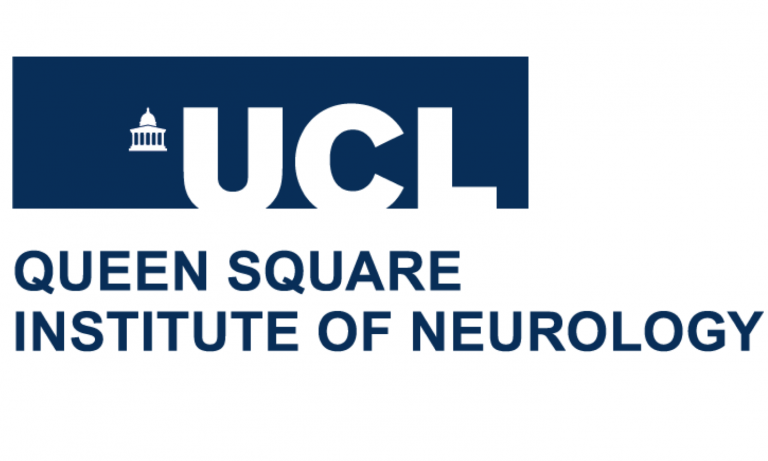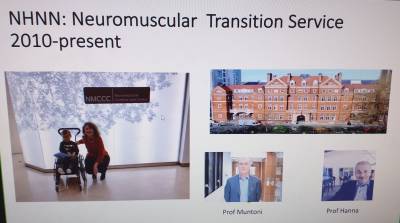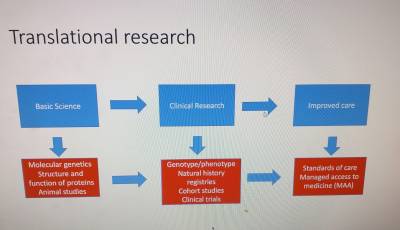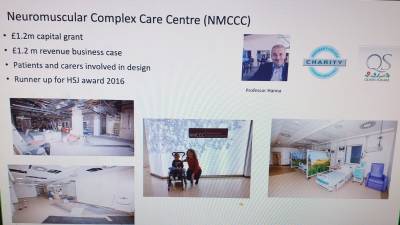Queen Square Inaugural Lecture: Professor Rosaline Quinlivan
25 May 2021
UCL Queen Square Institute of Neurology held its third inaugural lecture evening of 2021, on 25th May 2021, which was joined by over 100 UK and international attendees.

The inaugural lecture was given by Professor Rosaline Quinlivan (Professor of Neuromuscular Disease) on ‘Changing natural history of childhood onset muscle diseases’
Ros Quinlivan obtained a BSc in psychology before going onto to study medicine at UCL. Her post-graduate training was in paediatrics at London Teaching Hospitals. She was the first clinical research fellow in neuromuscular disease at Guy's Hospital, working across paediatric and adult specialties. She was awarded an MD by the University of London for her research into the cardiomyopathy of Duchenne and Becker Muscular Dystrophy. She was appointed a consultant in 1995 in the West Midlands, where she was director of the Wolfson Centre For Inherited Neuromuscular Disease.
She moved to UCLH in 2010, where she leads the transition service for adolescents and young adults with neuromuscular disease at GOSH and Queen Square and is clinical lead for the nationally commissioned service for McArdle disease and related disorders. She is joint co-ordinating editor for the Cochrane Neuromuscular Disease Group.
Professor Quinlivan's lecture started with an overview of her early career, before an overview of developments in treatment for Duchenne Muscular Dystrophy, including non-invasive ventilation and corticosteroids, and their side-effects. Professor Quinlivan then focused on recently funded research at UCL Queen Square Institute of Neurology, including brain and behavioural issues and adult DMD natural history study, and forthcoming clinical trials of DMD treatment strategies, as well as award winning services, including the Neuromuscular Complex Care Centre (NMCCC).
Professor Quinlivan then covered the features of McArdle Disease, measuring these through functional walking tests, and resistance training, sodium valproate feasibility studies and ongoing clinical trials, and epidemiology studies, as well as the nationally commissioned Highly Specialised service for McArdle Disease



Professor Michael Hanna introduced Professor Quinlivan and a vote of thanks was given by Professor Linda Greensmith.
 Close
Close

